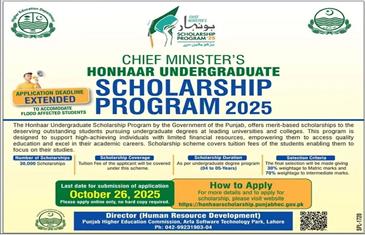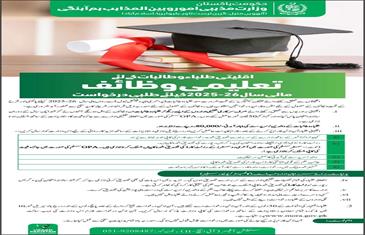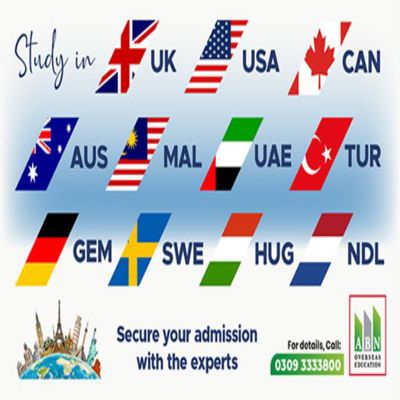Here Is What You Need To Know About Pursuing A Masters Degree In Netherlands
September 01, 2023 • 1105 Views

Study abroad expert advice
Don't waste time! just fill the form to get help.
The Netherlands is an increasingly popular study abroad destination for international students, and for good reasons. Dutch universities are renowned for their excellent academic standards and research-oriented programs. Many universities consistently rank among the top in global university rankings. Netherlands is a multicultural society with a welcoming attitude towards international students. You'll have the opportunity to interact with people from all over the world and experience a rich cultural exchange. While studying, you can work part-time to support yourself, and there are opportunities for internships and part-time jobs. After completing your degree, you can apply for a one-year residence permit extension to seek employment. Additionally Studying in the Netherlands provides you with a global perspective and exposure to different cultures and ideas, which can be invaluable in today's interconnected world.
Why A Master Program In Netherland?
Studying for a Master's degree in the Netherlands can be an excellent choice for many reasons. Here are some compelling arguments for why you should consider pursuing a Master's in the Netherlands:
-
Dutch universities collectively offer more than 2000 English taught Master's programs, covering a wide range of fields and specializations.
-
The majority of Master's programs in the Netherlands are taught in English, making it accessible to a international students.
-
The Netherlands' central location in Europe makes it convenient for international students to travel to neighboring countries for leisure and exploration.
-
Studying masters in Netherlands offer post-study work opportunities that allow you to stay and work in the country after graduation.
Top Universities For MS In The Netherlands
The Netherlands is home to several top universities that offer excellent Master's programs. While the ranking of universities can change over time and may vary depending on specific criteria, here are some of the top universities in the Netherlands known for their quality education and research:
-
Maastricht School of Management, Maastricht
-
University of Twente, Enschede
-
Global School of Entrepreneurship
-
The Hague University of Applied Sciences
-
Radboud University, Nijmegen
-
Wittenborg University of Applied Sciences
-
Tio Business School
Popular Courses For MS In Netherlands
The popularity of master's programs in the Netherlands can vary over time, but certain fields consistently attract a significant number of international students due to their quality and relevance. Here are some popular courses for master’s degrees in the Netherlands:
-
Engineering and Technology
-
Business and Management
-
Social Sciences
-
Environmental and Sustainable Studies
-
Health and Medicine
Who Are Eligible To Enroll In A Master Program In Netherlands
Eligibility criteria for enrolling in a Master's program in the Netherlands can vary depending on the university and the specific program. However, here are some general eligibility requirements that apply to many Master's programs:
-
You must have completed a Bachelor's degree or an equivalent qualification in a related field to the Master's program you wish to apply for.
-
You must need to demonstrate English proficiency through standardized tests like
-
IELTS: 6 bands
-
TOEFL: 213
-
-
Some Master's programs, especially in fields like business and engineering, may require the
-
GRE: 310 – 330
-
GMAT: 600
-
Documents Required To Get Admission In Dutch Universities
To gain admission to a Master's program at a Dutch university, you will typically need to provide a set of documents as part of your application. These documents serve to demonstrate your eligibility and provide the admissions committee with a comprehensive view of your academic background and qualifications. While specific requirements can vary by university and program, here are the common documents you may be asked to provide:
-
All academic transcripts
-
Photocopy of your ID card
-
Photocopy of valid passport
-
English language test certificate
-
Letter of motivation
-
Updated CV
-
Proof of financial stability
-
Letter of recommendation (from previous institute)
Remember to research specific universities and programs you're interested in for detailed information on admission requirements, tuition fees, and application deadlines. Additionally, consider reaching out to the study abroad counsellors for personalized guidance.
Related News
Consultants for Pakistan
Scholarships in Pakistan
-
 Pakistan
PakistanPakistan Minorities’ Welfare Fund Scholarships 2025-26 for Pakistani Students
-
 Pakistan
PakistanHonhaar Scholarship Program 2025 – Apply Online for Merit Scholarships
-
 Pakistan
PakistanMinority Students Scholarships 2025-26 Announced by Ministry of Religious Affairs Pakistan
-
 Pakistan
PakistanHigher Education Commission (HEC) Pakistan





.jpg)





.png)